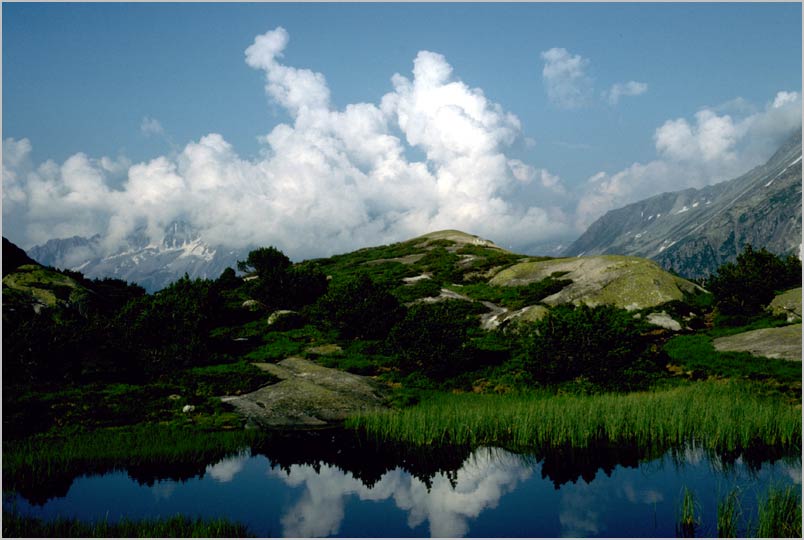
An Alpine Tarn, Andromeda Pool. The European Alps, Mid-summer, looking East.
A tarn is a small lake or pool, especially one in a basin created by glacial
erosion, like the one pictured above. A close up of the granite bedrock here
would reveal the remarkable texture or grain of hard rock polished smooth
by retreating masses of glacier ice. The sound of the word tarn seems to me
as ancient and as precious as that which it represents; it comes to us, I have
read, from the Scandinavian.
Here's a little high-country poem, one written for this very place,
but exactly half or six months around the solar calendar in mid-winter.
It is the last image, of the last stanza, that I find particularly striking:
the idea of "places so powerfully peaceful and quiet, that if one were
to play a properly tuned, long wooden alpine horn in the right direction,
at the right moment," how it might effect its sound and our experience
of it. The magic of the Alpine Horn, when heard in situ, is that one
can never quite say when it has stopped. Sometimes the sound seems
to linger for hours in a valley, and is heard somehow reflected in the
higher tones of the wind in the spruce trees, and the ever-present
sound of pure, rushing water.
This is, indeed, in the very most positive sense, Old Europe. It is also
here, in the more subtle sense of a spring or source, that the great cultures
of both the North and South of Europe might well in the future come
to renew and rediscover themselves. That is why the Alps, and the alpine
cultures that have evolved there and have been shaped by the Earth much
like the ice that shaped the tarn pictured above, must, at all costs, like the
very most precious of spiritual artifacts, be protected.
(If you would like to explore this idea of the common ground of Nature
and Music further, you might enjoy listening to my Ridge Crossing,
a larger piece of 15 smaller movements: [RealAudio or MP3]